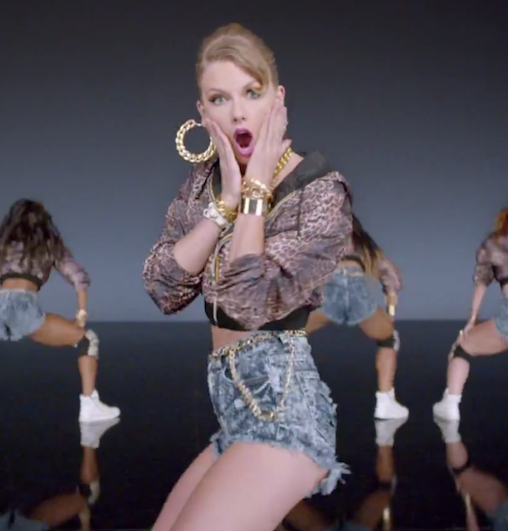 Taylor Swift made big news last year with the top selling album of 2014 and her high profile separation from Spotify. She made news again in 2015 with more hit songs and a high profile reconciliation with Apple Music after a very brief separation before the service even launched. Swift’s endorsement of Apple Music was considered a public relations coup at the time even though it was a bad business deal for the company. The question today is whether Apple Music can turn around another public relations issue.
Taylor Swift made big news last year with the top selling album of 2014 and her high profile separation from Spotify. She made news again in 2015 with more hit songs and a high profile reconciliation with Apple Music after a very brief separation before the service even launched. Swift’s endorsement of Apple Music was considered a public relations coup at the time even though it was a bad business deal for the company. The question today is whether Apple Music can turn around another public relations issue.
Topping the Charts: how not to pay
Last week, Apple Music’s initial 90-day free trial ended for millions of users. In honor of this milestone the most common story in online tech publications seemed to be, “How to avoid being charged by Apple Music after free trial,” or “How to disable Apple Music’s automatic renewal,” or some variation of this theme. The trend even extended to the general business press. BBC, Business Insider, Cnet, CultofMac, Engadget, International Business Times, MacWorld, 9to5mac, Quartz, Techcrunch, Techradar, TheNextWeb and countless others posted stories on the topic. A few publications got a jump on their rivals by posting similar stories the day the Apple Music trial debuted. Examples include Apple Insider, Mashable, PC Mag, and The Verge.
Publishers represent the supply side of the information equation. More concerning to Apple may be a Google trends chart that shows consumer demand for information. The search “Apple Music subscribe” (blue line) barely registers when compared to “Apple Music cancel” (red line). The best comparison between these two searches came in July and it was 31 cancel to 3 subscribe for a 10:1 ratio. The current ratio is 100:1.
Publishers are likely aware of search trends along with a statistic that showed up in the New York Post in September: 15 million people had tried Apple Music and half had not turned off the auto-renewal. This meant those users would be charged $9.99 on October 1st. Publishers want page views. Some were clearly betting that many of the 7.5 million Apple Music trial users that had not disabled auto-renewal would want to know how to avoid being charged for the service.
Will the Free Trial Create a Long-Term Audience?
 The question for Apple Music is what attracted 15 million people to its trial. Was it a great listening experience that surpassed existing streaming offerings or was it because the service was free for ninety days? iOS consumer survey data from MusicWatch suggested the user experience wasn’t keeping consumers around. It reported in an August report that only 11% of iOS users had tried the service and 48% had discontinued the free trial less than halfway through the 90-day trial period. The report concluded, “Nearly two-thirds (64%) of current users said they were extremely or very unlikely to pay to subscribe to Apple Music after the free trial ends.” Reports suggest Apple contested these survey results. However, the focus of publishers and Google searches on canceling the Apple Music subscription aligns well with the MusicWatch survey data.
The question for Apple Music is what attracted 15 million people to its trial. Was it a great listening experience that surpassed existing streaming offerings or was it because the service was free for ninety days? iOS consumer survey data from MusicWatch suggested the user experience wasn’t keeping consumers around. It reported in an August report that only 11% of iOS users had tried the service and 48% had discontinued the free trial less than halfway through the 90-day trial period. The report concluded, “Nearly two-thirds (64%) of current users said they were extremely or very unlikely to pay to subscribe to Apple Music after the free trial ends.” Reports suggest Apple contested these survey results. However, the focus of publishers and Google searches on canceling the Apple Music subscription aligns well with the MusicWatch survey data.
What Should Apple Music Do?
The logical question is what position does Apple Music occupy in the music streaming market and what should it do next to compete with rival services? For that answer you will have to wait for Part 2 tomorrow.
Related Posts
New Apple Music Ad Load Report
Apple Accepts the Worst Deal in Music Streaming – thanks to Taylor Swift
Is Apple Music Succeeding or Failing?
